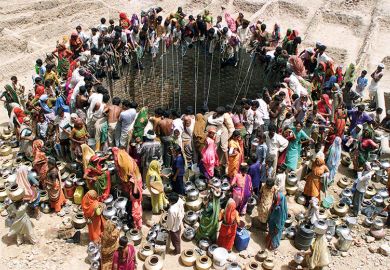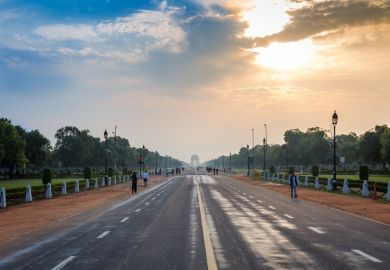The Indian government has announced the names of six universities that have been selected as “institutes of eminence”, but has fallen short of its target of assigning 20 universities with the status.
The University Grants Commission said that three public universities (the Indian Institute of Science, Indian Institute of Technology Bombay and Indian Institute of Technology Delhi) and three private universities (Birla Institute of Technology and Science, Pilani, Manipal Academy of Higher Education – formerly known as Manipal University – and Jio Institute) were awarded the status of “institutes of eminence”.
They were selected on the basis of their scores in the national institutional ranking framework – a government initiative established in 2016 to rank Indian universities.
The initiative aims to create a regulatory structure to allow select universities to emerge as world-class teaching and research institutions. The government previously announced that each institute will receive 5 billion rupees (£56 million) over five years.
However, N. Gopalaswami, head of the Empowered Expert Committee, which was in charge of shortlisting the candidates, told CNN-News 18 that it was “asked to select 10 public and 10 private institutes to bag the tag of the IoEs, but we could not find 20”.
CNN-News 18 suggested that this was on the grounds of weak quality of teaching and research at other institutions.
In a tweet, Prakash Javadekar, minister for human resource development, wrote that India has 800 universities “but not a single university in top 100 or even 200 in the world ranking. Today’s decision will help achieve this”.
He added that the new institutes will be granted “full autonomy”.
“This will facilitate them to grow more rapidly and at the same time they will get more opportunity to scale up their operations with more skills and quality improvement so that they become world class institutes,” he wrote.
The Indian government had planned to select the institutions by April, but scrapped its initial shortlist after using incorrect indicators.
Register to continue
Why register?
- Registration is free and only takes a moment
- Once registered, you can read 3 articles a month
- Sign up for our newsletter
Subscribe
Or subscribe for unlimited access to:
- Unlimited access to news, views, insights & reviews
- Digital editions
- Digital access to THE’s university and college rankings analysis
Already registered or a current subscriber?








